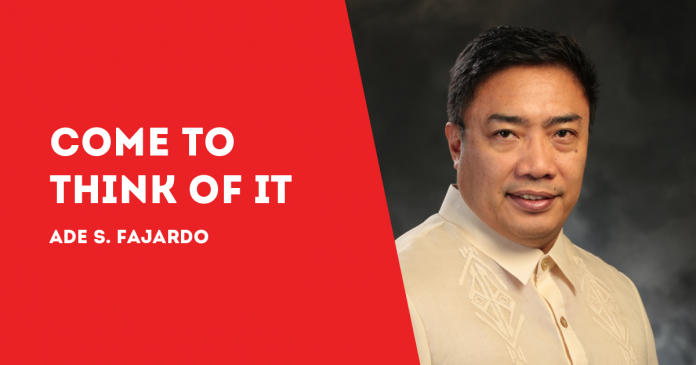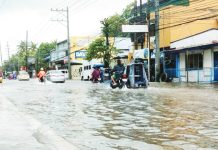
THE nCovid pandemic has affected us in ways like no other calamity ever has.
Typhoons, volcanic eruptions and earthquakes have brought us to our knees. But this one is testing us in terms of how we respond to death, sickness, fear, isolation, and hunger, all in a lingering, morbid striptease that is now breaking our collective sanity.
How our mayors are reacting to this crisis presents us a spectrum of competence and incompetence. They are front-liners, in more ways than one, and a break in the chain can bring about disastrous results.
Iloilo City’s Jerry Treñas has so far shown himself to be among those ready and focused to wage battle against the unseen enemy. His role is important because Iloilo is the gateway to Panay.
Our megacities must be able to “flatten the curve” before our healthcare system, so inadequate even prior to the pandemic, finally gives in to the weight of infected health workers and neglected patients – nCovid related or otherwise.
Republic Act 11469, or the Bayanihan Heal as One Act, requires the President to ensure that local government units (LGUs) are acting in accordance with the directives of the national government in the efforts to address this health crisis. The law intends to make sure that LGUs are implementing the community quarantine consistent with what the national government has laid down for their respective areas.
And the law wields a sword. It penalizes local government officials who disobey national government policies or directives in imposing quarantines. In addition, the erring government official or employee may suffer perpetual or temporary disqualification from public office.
This makes the Bayanihan Act a punitive piece of legislation on top of being an emergency measure.
The Bayanihan Act itself does not suspend local autonomy. But we are apprehensive that the imposition of further punitive sanctions for acts that are already penalized under existing laws might actually limit or stifle local ingenuity. When coordination is hampered by physical difficulties, it is not difficult to imagine local executives having second thoughts about getting innovative without express authority from the national government.
Moreover, further penalizing certain acts at a time when people are in fact frozen in place may reek of oppression and arbitrariness. This may serve no other purpose but to further burden the already burdened justice system. Law enforcement may run amuck, and the lawyers will scramble for internet filings before the prosecutorial service and the courts which themselves are scrambling for novel solutions.
With its plate full of crimes that remain unsolved, the National Bureau of Investigation announced last Wednesday that it had launched an investigation on Pasig City Mayor Vico Sotto’s “alleged” violation of the Bayanihan Act. The NBI letter, well circulated by news outlets, requested for a “written explanation on the alleged violation of Section 6 (a) of Republic Act No. 11469.”
The NBI did not name any complainant. It did not state who it was who “alleged” the violation. If at all, it appears that it was the NBI, by itself, that determined that there was a violation, and that an investigation had to be started right away.
Republic Act No. 10867 provides for an enumeration of offenses over which the NBI has the primary jurisdiction to commence an investigation. Among those crimes are extrajudicial killings by state security forces of activists and media practitioners. Also included are the killings of judges and justices.
Understandably, alleged violations of the Bayanihan Act are not included in the enumeration because it is a new law. However, there is a proviso that provides that the President or the Secretary of Justice may direct the NBI to undertake the investigation of any crime when public interest so requires.
President Rodrigo Duterte has since denied that he had anything to do with the NBI’s move to summon Mayor Vico Sotto over supposed violations of the Bayanihan to Heal as One Act.
Interior Undersecretary Jonathan Malaya was quoted as saying that “this act of summoning the mayor of Pasig is a useless political distraction at this time when all of us are preparing and cooperating to beat the COVID crisis right now.” The NBI is now caught between zealousness and independence.
As mentioned, the Bayanihan Act imposes “perpetual or temporary disqualification” from office to offenders. The national and local elections are but a couple of years away. May this provision not be used as a political weapon. Let our mayors sink or swim on their merit./PN





